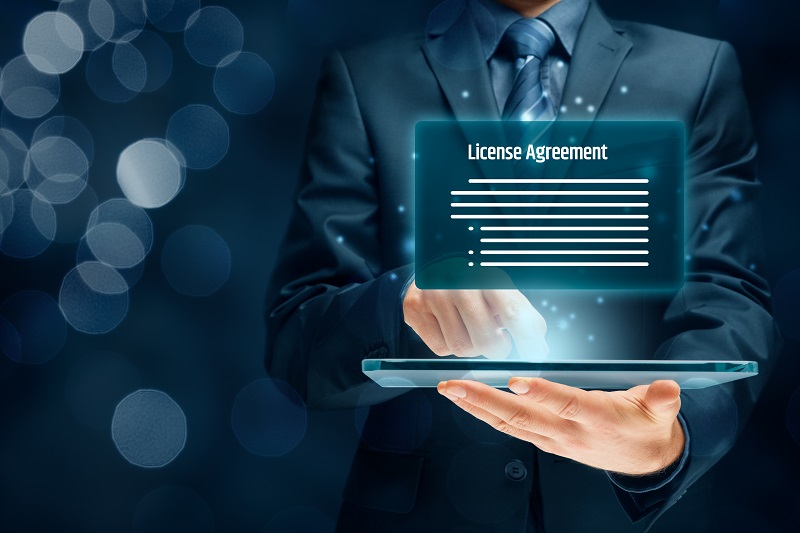Why all the fuss?
Over the last couple of years, there has been a meaningful increase in demand for e-books. Yet whether e-books can be smoothly sold on a secondary market as in the case of their printed versions has been unclear under the EU copyright law. While it is established that the distribution of printed books is covered with the principle of exhaustion, the same cannot be said assertively for e-books.
In a nutshell, the principle or rule of exhaustion (known as the first sale doctrine in US law) sets forth that copyright holders can control only the initial sale of copies of their work. After the first sale is made with the rightsholder’s consent, the distribution right is considered “exhausted” and any subsequent transfer of the ownership of that particular copy is no longer within their control and can be distributed on a secondary market without any further authorization of the copyright holder (Article 4(2) InfoSoc Directive). Such a principle has been unequivocally applied to physical copies of copyrighted works, and it is one of the reasons why the secondary market for vinyl records, books, and paintings has flourished for years. Yet, whether digital copies of copyrighted works that are not physically incorporated (e.g. audiobooks, e-books, digital music, etc.) are covered by the principle of exhaustion has been the source of many fruitful debates among lawyers and scholars. In order to resolve the ambiguity over application of the exhaustion principle to digital copies under the EU law, the referring Dutch court sought from the CJEU clarification on whether the supply of an e-book by downloading, for permanent use, constitutes “communication to the public” [within the meaning of Article 3(1) of the InfoSoc Directive], or if it represents an act of “distribution to the public”, [as referred to in Article 4(1) of the same directive]. In the case of the latter, the principle of exhaustion kicks in and lawfully acquired e-books can be legally sold on a second-hand market without the rightsholder’s consent. Conversely, if the supply of an e-book constitutes an act of “communication to the public”, the principle is not applicable as the Article 3(3) of the Directive, governing such a right, specifies that the right of communication to the public is not subject to exhaustion. In other words, the current owner of an e-book is required to seek authorization from a copyright holder as the rightsholder has the embedded right to control every transfer of their e-books.
How did it unfold?
Tom Kabinet Internet is a Dutch company that operates an online second-hand marketplace for e-books. Its business model is based on offering e-books for purchase that are either acquired from publishers or obtained through free of charge donations. Soon after their dealing got some traction in 2014, two Dutch associations that advocate for the interests of publishers filed for an injunction prohibiting Tom Kabinet from making available e-books. The main claims were that Tom Kabinet infringes on the right of communication to the public by offering e-books on its online platform and that by keeping copies of the e-books on its servers, Tom Kabinet engages in unauthorized acts of reproduction. Finally, the associations argued that Tom Kabinet is also infringing on publishers’ distribution rights. On the other hand, Tom Kabinet asserted that the right of distribution was exhausted by the first legal sale [like in the UsedSoft case (C-128/11) where the CJEU clarified that the first sale of computer programs is subject to a “digital exhaustion” under the Software Directive (2009/24/EC)]. Since the Dutch courts were unsure whether the InfoSoc Directive envisages “digital exhaustion” for e-books, as in the case of computer programs under the Software Directive, the referring court submitted four questions to the CJEU.
CJEU Decision
The Court of Justice answered only to the first question, that is, whether the act of supplying an e-book by means of download for permanent use results in “communication to the public” or “distribution to the public”. The Court found that the resale of e-books on secondary markets constitutes an act of communication to the public which is covered by the right of communication to the public within the meaning of the Article 3(1) of the InfoSoc Directive. The Article also provides an exclusive right to rightsholders to make their works available to the public by way of interactive on-demand transmissions and specifies that the principle of exhaustion does not apply. The decision for the most part follows the reasoning from the opinion that Advocate General Szpunar issued a few months ago, which endorsed the idea that copyright holders maintain the right to control subsequent exploitations of their intangible and immaterial in nature works after the initial sale. The judges found that the World Intellectual Property Organization (WIPO) Copyright Treaty which forms the basis of the InfoSoc Directive along with the preparatory works for the InfoSoc Directive and recitals 28 and 29 unambiguously indicate that the rule of exhaustion is intended to be applied exclusively to the distribution of physical/tangible copies. Therefore, the court stressed that the EU copyright law excludes the application of the exhaustion principle when the intellectual property is not incorporated in a material medium. The judges agreed with the Advocate General and went on to say that the distribution right which envisages exhaustion applies solely to the distribution of physical copies and that in this particular case, the interactive on-demand transmission of e-books is covered by the right of communication to the public.
In the end, the CJEU reviewed the earlier case law and gave special regard to the UsedSoft decision where it was found that the notion of exhaustion applies to both tangible and intangible copies of computer programs [within the meaning of the Article 4(2) of the Software Directive (2009/24)]. However, the bench was clear to point out that the Software Directive is lex specialis in relation to the InfoSoc Directive, and therefore an e-book should not be conflated with a computer program to which a different legal regime is applicable.
Conclusion
With the decision in the Tom Kabinet case, it is now clear that digital copies of copyrighted works are not covered by the exhaustion principle, and therefore, any transmission or retransmission of a work to the public by wire or wireless means amounts to a copyright infringement, unless a prior authorization from the copyright holder has been obtained. This reasoning is in line with the position of the US courts that have confirmed the non-applicability of the US first sale doctrine to the case of digital music in the landmark Capitol Records, LLC v. ReDigi Inc. case. While the judgement in the Tom Kabinet case introduced much needed legal certainty, there will still be debate on whether the slightly archaic division between copyrighted works that are incorporated in a material medium and those that are not is fully justified in today’s world where intellectual property is often consumed in a digital environment.
This website uses cookies so that we can provide you with the best user experience possible. Cookie information is stored in your browser and performs functions such as recognising you when you return to our website and helping our team to understand which sections of the website you find most interesting and useful.




